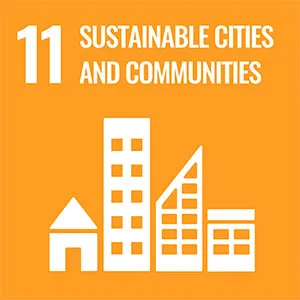MSc Embedded Systems
The master's programme in Embedded Systems provides a thorough understanding of Embedded Systems and specialisation in a specific area covering theoretical and practical aspects of embedded systems development. Students gain engineering skills and learn integration of software and hardware, system design, integration, verification and management. Graduates have the expertise to harness the possibilities for innovation in the growing area of embedded systems.

Embedded systems are the most common form of computer systems, utilising around 98% of all manufactured processors for their applications, from sewing machines and cars to satellites and power plants. The common denominator for these systems is high-level demands on functionality and reliability. The master's programme in Embedded Systems fosters highly competitive graduates in this critical field.
The master's programme in Embedded Systems provides a broad education in the field and the opportunity to specialise in areas that cover the theoretical and practical aspects of embedded systems development. We place particular emphasis on engineering skills, software and hardware integration, system design, integration, verification, and the management of the design process.
The programme offers two tracks:
- The Embedded Electronics track focuses on the design of electronics in an embedded system, with a strong emphasis on the design of circuit boards, ASICs, and programmable FPGAs. The student can choose to become a specialist in the development of digital and analogue integrated circuits, System-on-Chip (SoC) design, or embedded electronics with the aim of creating new technical solutions to global challenges.
- The Embedded Systems Design track focuses on designing the embedded system (i.e., the embedded platform itself) and how to develop its software (including real-time). The student can choose to specialize their knowledge more towards the hardware (e.g., hardware security or hardware description) or the software side (real-time or reliability)
The programme totals 120 ECTS credits, distributed as follows: approximately 30 ECTS credits are mandatory courses for all students; roughly 30 ECTS credits are specialised courses, mandatory for each particular track; about 30 ECTS credits are elective courses; and the final 30 ECTS credits are dedicated to the degree project, carried out in the final semester.
The degree project aims to demonstrate the skills you have acquired during the programme, and it can be conducted at KTH, another university, or a company. You will write a thesis report, present it and defend the results. The project focus can be suggested by you, an examiner, a company, a public agency, or any other external organisation. However, the project plan must receive approval from the examiner of one of the thesis project courses in the curriculum.
This is a two-year programme (120 ECTS credits) in English. Graduates are awarded the Master of Science degree. The programme is provided at KTH Campus by the School of Electrical Engineering and Computer Science (at KTH).
Courses in the programme
The programme courses cover topics such as Embedded systems, Digital design and validation with HDLs, Embedded hardware design in ASIC and FPGA, Computer systems architecture, Embedded many-core architectures, Design of fault-tolerant systems, Hardware security, Electronic systems design, Fundamentals of integrated electronics, Embedded software, Software reliability, and Methods in software engineering.
Courses in the programme
The courses in the programme cover topics such as Embedded systems, Digital design and validation with HDLs, Embedded hardware design in ASIC and FPGA, Computer systems architecture, Embedded many-core architectures, Design of fault-tolerant systems, Hardware security, Electronic systems design, Fundamentals of integrated electronics, Embedded software, Software reliability, Methods in software engineering.
Courses in the programme Embedded Systems
Future and career
The enormous price and performance developments of electronics, coupled with their flexibility and programmability, create considerable opportunities for innovation. At the same time, the industry is experiencing problems with sustaining competence in the area and facing significant challenges in managing the integration of software and hardware.
Employers of graduates from the master's programme in Embedded Systems are companies that develop electronic components and embedded systems in all possible areas. After graduation you can find work as a hardware design engineer, embedded software engineer, consultant, developer, programmer, project manager, R&D engineer, industrial expert, or startup founder. You can also pursue a career in academia as a researcher or doctoral student in related areas.
Sustainable development
Graduates from KTH have the knowledge and tools for moving society in a more sustainable direction, as sustainable development is an integral part of all programmes. The three key sustainable development goals addressed by the master's programme in Embedded Systems are:



You will acquire a fundamental understanding of the power and energy consumption of transistor-based electronic and computer systems and knowledge of basic principles for improving and optimising their power and energy efficiency in performance, cost and reliability constraints for electronic consumer products, mobile computing devices, network and communication systems, the Internet of Things and cloud computing infrastructures. Multiple courses, from theory to practice, from mini-project to degree project, allow our students to develop relevant expertise continuously.
You will be able to work as an engineer in companies that develop power- and energy-efficient solutions for electronic and embedded computing systems, a manager in organisations that provide energy-efficient IT solutions in healthcare, economic and industrial sectors, or a researcher in institutions that conduct cutting-edge research on emerging and future sustainable electronics, computers and networked systems.
Faculty and research
The master's programme in Embedded Systems is offered by the School of Electrical Engineering and Computer Science at KTH. Embedded Systems is within the subject of Electrical and Electronic Engineering, for which KTH has been a top 25 university worldwide for more than five years in a row in the QS World University Rankings by Subject. The programme is coordinated via the Division of Electronics and Embedded Systems, Department of Electrical Engineering.
Edu4Chip

KTH is part of the Edu4Chip initiative in collaboration with the Technical University of Munich, the Technical University of Denmark, Tampere University, and Institut Mines-Télécom. Edu4Chip is a cutting-edge, hands-on master's course programme in advanced chip design. Students in the master's programme in Embedded Systems can benefit from this collaboration by taking courses and participating in projects and activities at other universities.







